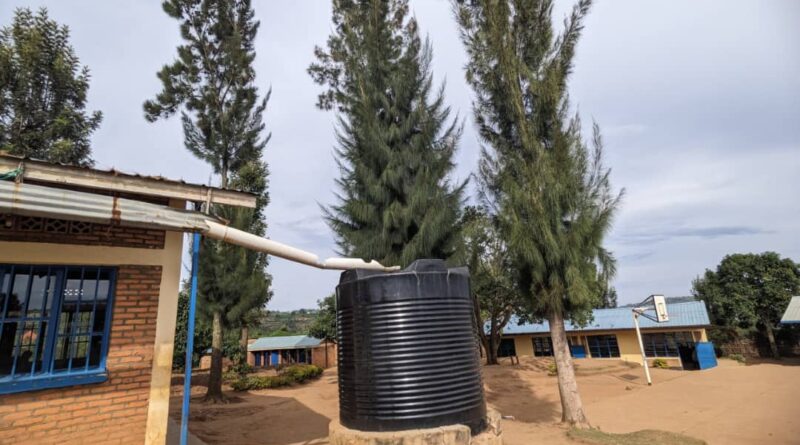Gicumbi: A School Offering Hope in Environmental Conservation and Climate Change Adaptation
The headteacher of a secondary school located in Kigabiro Cell, Rutare Sector, says that helping students understand the value of the environment is part of their core mission, adding that they also teach them practical ways to respond to climate change.
He shared this message on October 14, 2025, in an interview with Green Africa, explaining that teaching students about climate change adaptation used to be a major challenge, but now most of them have embraced environmental protection as a personal responsibility.
The uniqueness of this school, G.S. Kirwa, lies in its approach of planting trees around classrooms to provide students with fresh air and shade. Moreover, many of the planted trees are fruit-bearing, providing food for students, while the school gardens produce vegetables to help combat malnutrition.
According to the headteacher of G.S. Kirwa, addressing climate change is no longer a challenge for them. The school has installed rainwater harvesting tanks to prevent runoff from damaging nearby homes. The collected water is used for cleaning and hygiene purposes, and environmental education is now integrated into all academic levels up to Senior Six.
The school has also established student clubs dedicated to environmental awareness. These clubs, working alongside teachers, lead campaigns to promote environmental conservation, ensuring that students carry these lessons home during holidays and share them with their parents.
Nsizabavandimwe Jean Pierre, a teacher at the school, says that students have developed habits of cleanliness, tree planting, and environmental stewardship after learning about the importance of protecting nature and mitigating climate change.
The school compound is surrounded by various trees that provide clean air and shade, including fruit trees such as avocado and mango. It has also installed waste bins for separating biodegradable and non-biodegradable waste to make organic compost for the gardens, while the non-biodegradable waste is properly disposed of in designated areas.
Gicumbi District Mayor Emmanuel Nzabonimpa commends the teachers of this school, noting that once students learn these practices, they can apply them at home during holidays,helping their families protect soil and farmland from erosion.
He said:“It’s impressive to see a clean school environment with green gardens and well-maintained trees. We encourage other schools to learn from this example because where there is a culture of cleanliness and care, others will naturally be inspired to follow.”
The Mayor shared these remarks as part of a new community outreach campaign called “Mayor mu Isibo” (Mayor in the Community), which aims to strengthen connections with residents by visiting them, monitoring development projects, and encouraging long-term sustainability. This initiative complements regular community assemblies where local challenges and solutions are discussed across different sectors.

